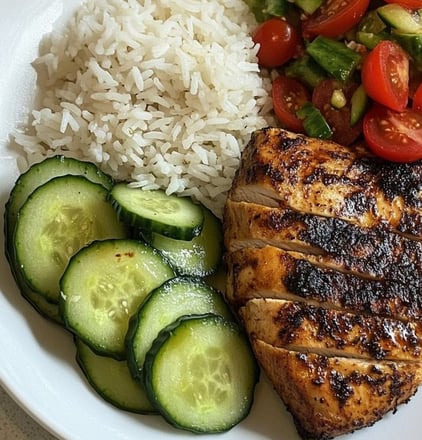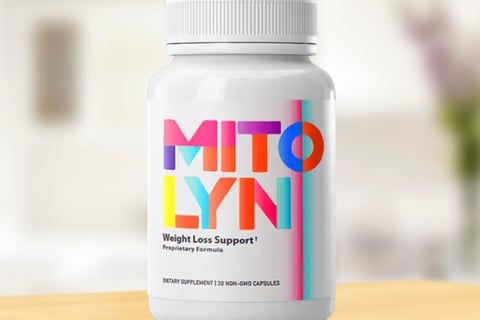You Are What You Eat: How Food Shapes Health, Prevents Disease, and Transforms Lives
We have heard this many times now that what we eat is what we become. And I full agree to it as I have tried it on myself. I faced chronic Acid reflux issue during COVID-19 period increasing anxiety and sinking feeling. To overcome all that naturally I started to learn more about what I eat to become healthier. “Let food be thy medicine and medicine be thy food.” – Hippocrates The age-old wisdom that you are what you eat has never been more relevant. As science continues to uncover the intricate relationship between diet and health, it's becoming increasingly clear that the food we consume plays a crucial role in determining our overall well-being. From preventing chronic diseases to improving mental clarity, food is far more than fuel — it's a foundational element of a healthy, vibrant life.
5/1/20253 min read
The Biological Blueprint: How Food Affects the Body
Every cell in your body is built from the nutrients in the food you eat. Carbohydrates, proteins, fats, vitamins, and minerals are the building blocks of life. Here’s how these nutrients shape your health:
Proteins help repair tissues and build enzymes, hormones, and muscles.
Healthy fats support brain function, hormone production, and cell structure.
Carbohydrates provide essential energy.
Vitamins and minerals regulate countless biochemical processes, including immunity, metabolism, and bone health.
When you eat nutrient-dense food, your body runs efficiently. But when your diet is full of ultra-processed, sugar-laden, and nutrient-poor options, inflammation, disease, and fatigue often follow.
Food as Preventive Medicine
Many chronic diseases — including heart disease, type 2 diabetes, obesity, and even certain cancers — are closely linked to dietary habits. The right foods can significantly reduce the risk of developing these conditions.
1. Heart Disease
Diets rich in fiber, omega-3 fatty acids, and antioxidants (found in whole grains, nuts, fish, fruits, and vegetables) lower bad cholesterol and blood pressure.
Avoiding trans fats, excess sodium, and processed meats reduces heart disease risk.
2. Type 2 Diabetes
A diet low in refined carbohydrates and high in complex carbs (like legumes and whole grains), along with regular intake of healthy fats and lean proteins, helps stabilize blood sugar.
The Mediterranean diet and plant-based diets have shown significant benefits in preventing and managing diabetes.
3. Cancer Prevention
Cruciferous vegetables (e.g., broccoli, cauliflower), berries, and green tea contain phytochemicals that may reduce the risk of certain cancers.
Limiting red meat, alcohol, and processed foods has also been linked to lower cancer rates.
4. Gut Health and Immunity
A diet high in prebiotics (fiber-rich foods) and probiotics (like yogurt and fermented vegetables) supports a healthy microbiome, which is crucial for digestion, immunity, and even mental health.
The Mind-Body-Food Connection
The impact of diet isn’t limited to the body — it affects the brain and emotional health as well. Research links poor dietary patterns to increased risk of depression, anxiety, and cognitive decline.
Omega-3 fatty acids, found in fatty fish, support brain function and mood regulation.
Dark chocolate, rich in flavonoids, may boost brain plasticity and memory.
Fruits and vegetables provide antioxidants that combat oxidative stress and inflammation in the brain.
Real Food vs. Processed Food
The modern diet is often dominated by processed and ultra-processed foods — items that are high in sugar, salt, and unhealthy fats, but low in nutritional value. These foods can disrupt hormones, spike blood sugar, and fuel chronic inflammation.
In contrast, whole foods — those that are minimally processed and closer to their natural state — are packed with the nutrients your body recognizes and needs.
Examples of Whole, Healing Foods:
Leafy greens (spinach, kale)
Colorful vegetables (carrots, bell peppers)
Whole grains (quinoa, oats)
Legumes (beans, lentils)
Nuts and seeds (almonds, chia seeds)
Lean proteins (chicken, fish, tofu)
Fruits (berries, apples, bananas)
Practical Tips for Healing Through Food
Crowd Out, Don’t Cut Out: Add more nutrient-rich foods before eliminating the less healthy ones.
Cook at Home: Preparing meals at home gives you control over ingredients and portion sizes.
Eat Mindfully: Slow down, chew thoroughly, and listen to your body's hunger signals.
Shop the Perimeter: Most whole foods are located along the outer edges of grocery stores.
Hydrate Wisely: Water, herbal teas, and natural beverages beat sugary drinks every time.
A Final Word: Food as Empowerment
Food is one of the most powerful tools you have to influence your present and future health. Every bite is a choice — not just about taste, but about vitality, energy, and longevity.
By embracing food as medicine, we don't just treat disease — we prevent it, heal from it, and thrive in ways that prescriptions alone can’t provide.
In a world filled with quick fixes, let’s return to something timeless and fundamental: nourishing our bodies with intention, one meal at a time.



